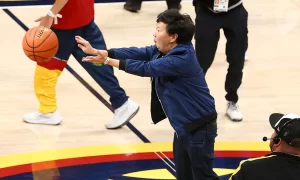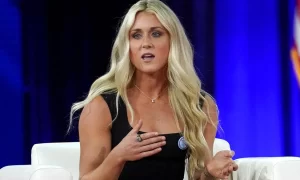‘I’ve never saved a dime’: Shark Tank’s Barbara Corcoran has spent her millions — including parting with half of it

The Shark Tank star said she got her spending reasoning from her mom — and it’s served the land titan well.

Warren Buffett broadly said: “Don’t save the thing is left pursuing spending, yet spend the thing is left pursuing saving.”
Shark Tank star Barbara Corcoran differs — she spends everything.
The land tycoon says she’s never saved a penny in her life — a way of thinking imparted in her by her mom — and that by putting it in business or others the profits have made want more.
Corcoran, who acquired her mogul title kindness of New York land business the Corcoran Gathering, told CNBC her best guidance for bringing in cash is to spend it in any case.
“I’m simply not a devotee to setting aside cash. I’ve never saved a dime my entire life,” she said.
“I had a mother who brought up 10 children on a careful financial plan, and she generally said cash is intended to be spent. What’s more, she didn’t have a lot to spend.”
The example stayed with the property head honcho, who having sold her business for $66 million of every 2001, quickly started plotting how she could spend it.
Also, that is fine, she accepts, for however long you’re spending your cash on the right things.
The 74-year-old said she gave around 50% of the returns to “family, companions, schooling reserves, good cause, since I truly accept assuming that you burn through, cash returns to you.”
“I think the lighthearted disposition of accepting that cash brings in cash, assuming you’re willing to share it and spend it, truly works, or possibly it has absolutely worked for me,” she proceeded. “Furthermore, I don’t have confidence in accumulating cash, setting aside cash, that’s what everything like. Since for me… it would remove my soul.”
Contributing is surely a critical part of her job on Shark Tank, with Corcoran having presented an expected $16 million as per Humble Ascent — a site devoted to the show.
All things being equal, Corcoran has recently been open about the way that relatively few of her organizations have given enormous returns — she’s essentially in it to help energetic individuals.
“I’ve put resources into 150 organizations, and I’ve brought in cash on around 10%,” she uncovered recently. “I’m searching for aspiration. Somebody who imagines where they’re going, and I get bulldozed when they let me know they’re going there.”
The television big shot — who almost lost her spot on the board before an episode even broadcasted — added she’s almost failed multiple times and consistently figured out how to return quickly.
The last time — during the 1990-91 downturn — Corcoran’s mom told her: “Don’t stress over the cash. It’s an exercise in futility. I came up with something that made me 1,000,000 bucks the following week.”
What do different sharks say?
Different sharks on Shark Tank have different thoughts.
Mark Cuban, as far as one might be concerned, has the contrary attitude to his board peer.
In 2015, Cuban shared his tips on the best way to get rich, and his recommendation was straightforward: “Set aside your cash. Set aside as much cash as possible. Each penny you can. Rather than espresso, hydrate. Rather than going to Mcdonald’s, eat macintosh and cheddar.
“Cut up your charge cards. On the off chance that you utilize a Mastercard, you would rather not be rich. The initial step to getting rich requires discipline. To be rich, you really want to track down the discipline.”
Individual specialist Daymond John honestly loves saving, empowering individuals from general society to “think before [they] spend.”
Talking on YouTube John made sense of: “Each and every time you get a dollar or a check… there are three methods for spending that cash, and individuals generally use them in reverse.
“Number one: You pay for what you totally need. Number two [is] truly basic: Contribute. Number three: Indulge yourselves with the things you don’t require however you might want to have.
“Individuals for the most part number three as number one; they never number two, and number one is number three.”
What’s more, Canadian financial specialist Kevin O’Leary really loves saving — however not similarly as other expert money specialists.
O’Leary recommends people ought to “have three months of compensation available if there should arise an occurrence of crisis” however not the six or even a year’s worth individual budget master Suze Orman proposes.
Addressing CNBC, O’Leary made sense of this is a result of high expansion rates comparative with premium, meaning cash left in the bank isn’t getting the additions it generally ought to.
Rather he recommends money management: “Reserve funds in real money in a ledger make fundamentally no premium, surely after expansion. Contributing is staying up with the value and securities exchanges. Furthermore, I think you’ve truly got to grasp the distinction between the two.”














































